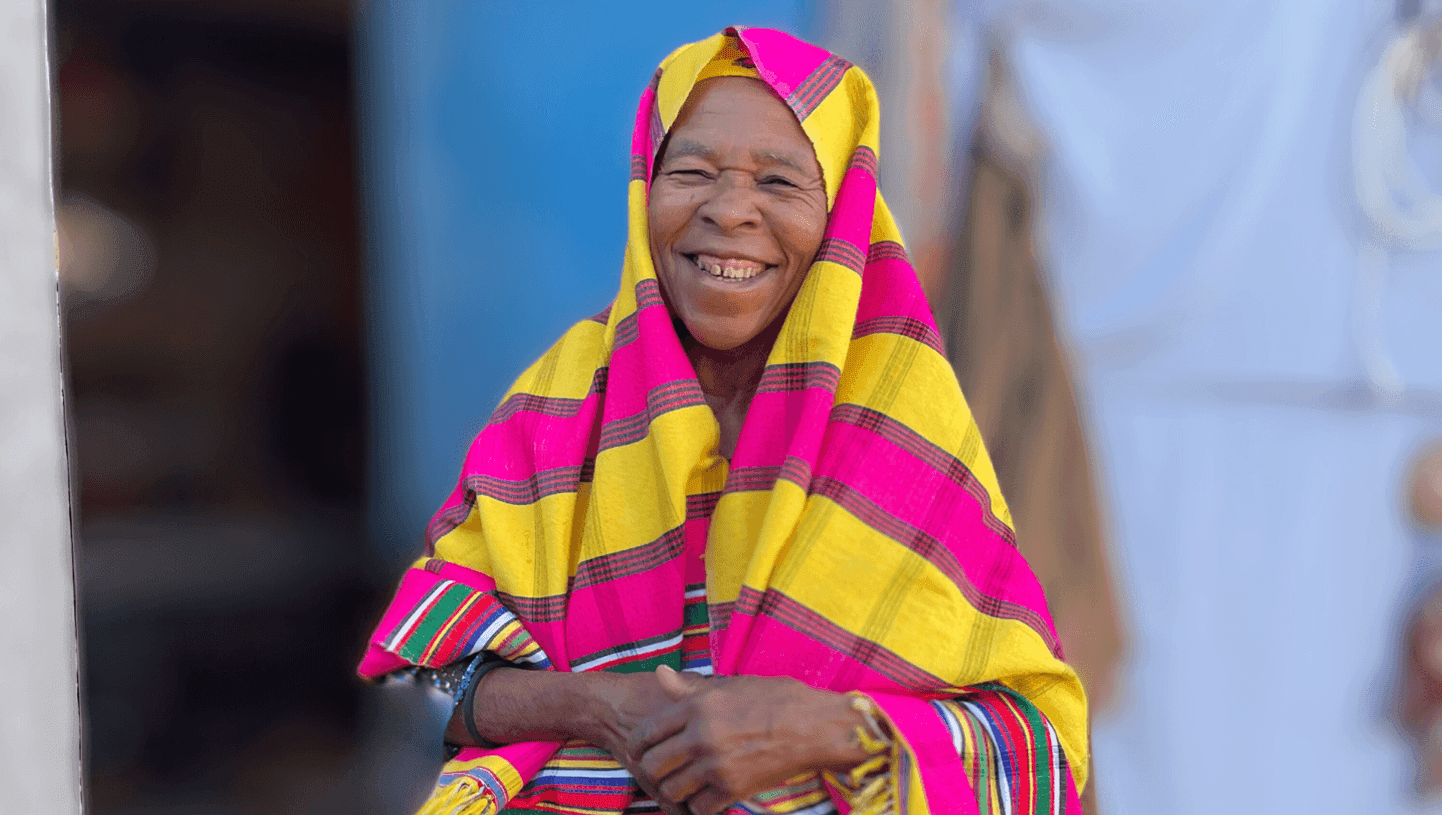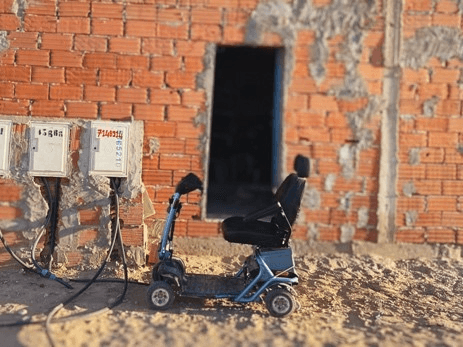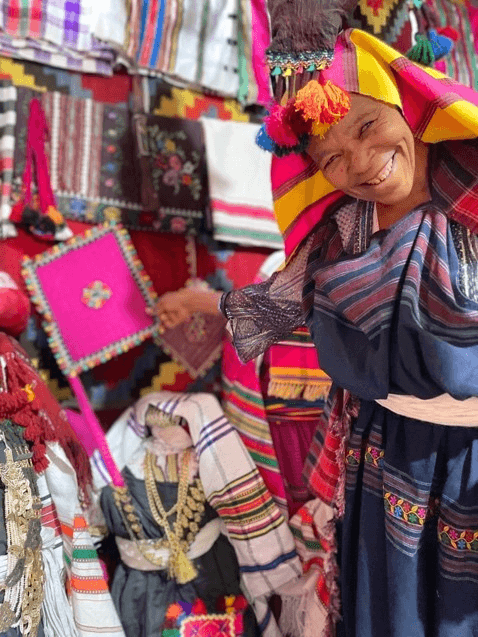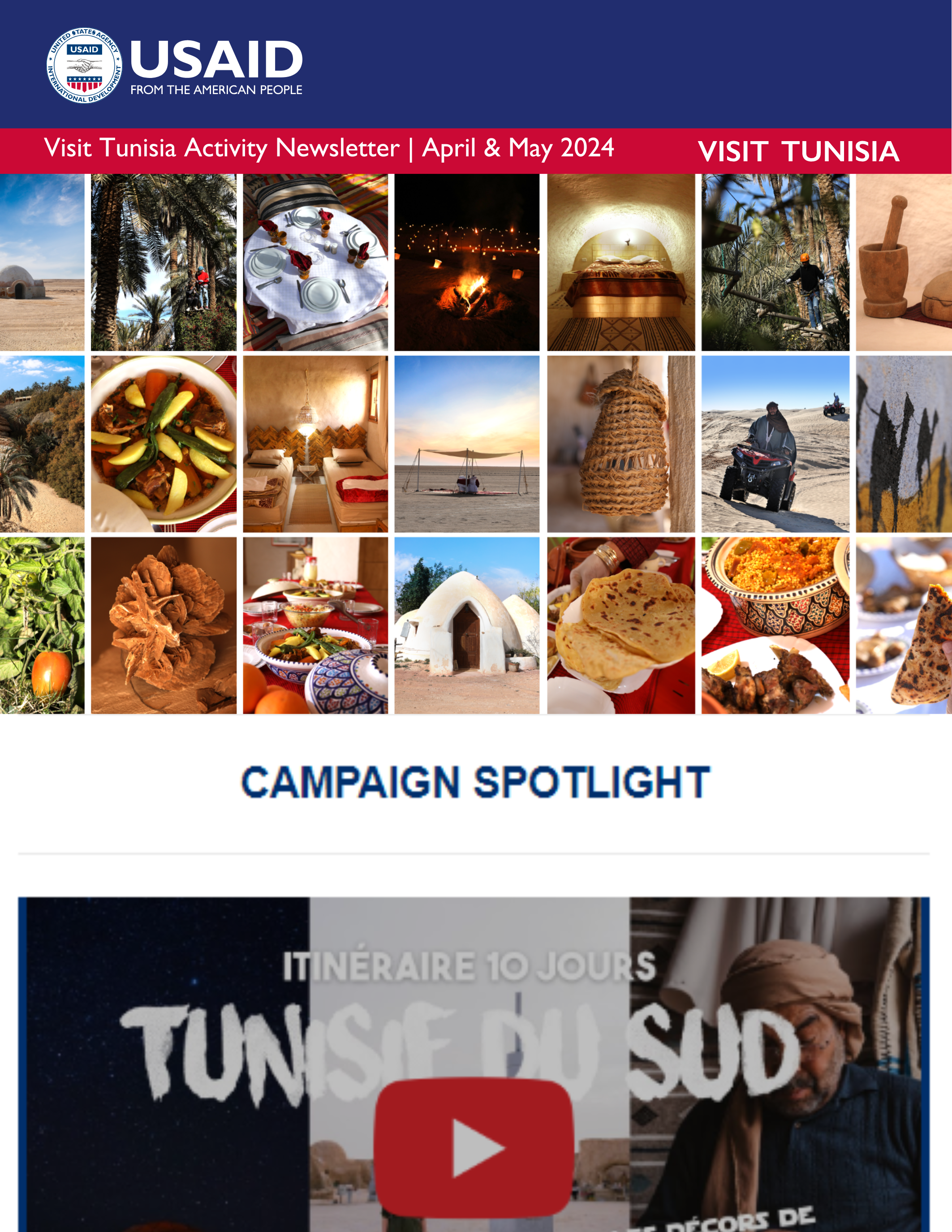As part of its Tunisia Living Cultures (TLC) Program, USAID Visit Tunisia is providing market readiness support to 17 women-led SMEs, (representing 57% of a total 30) selected from an initial pool of 280+ artisans and culture-bearers. The TLC program aims to create tourism experiences centered around intangible cultural heritage and start engaging domestic and international travelers by the end of 2023/ the beginning of 2024. Tunisia’s Living Culture program is an initiative of USAID Visit Tunisia in partnership with the Smithsonian Center for Folklife and Cultural Heritage. Below is a deep dive into the USAID–supported Leather Making experience in Ghomrassen, Tataouine.
‘Leather Making’ Experience in Ghomrassen Led by Aicha Chouchene
Aicha is 62 and her life has not been without challenges. Her husband passed away when she was 25, leaving her and their five children vulnerable and resourceless. She started sewing and weaving 15 years ago. Today, she’s the go-to-person for traditional wedding accessories in the neighborhood. After decades of resilience, sacrifice, hard work, and determination, and with support from her family and community, she built an open air museum where she exhibits pieces full of Ghomrassen’s history, as well as her own hand-made traditional leather accessories.
With USAID Visit Tunisia’s expert assistance, Aicha created an immersive workshop of leather making accessory called 'dhabya’ for brides, and a culinary experience where she shares her traditional recipes that have been cherished in Tataouine for centuries. To create a good atmosphere during the workshop, she sings traditional songs that are played at weddings in Ghomrassen and the surrounding region. In addition to the existing museum, Aicha offers a guided tour, providing stories and explanations about the significance of each item and its connection to Ghomrassen's heritage.
“My museum has an illusion of ceiling with carpets and rugs. In reality, it’s an open-sky space. When it rains, everything becomes wet and takes days to dry and clean. It’s hard to maintain.” — Aicha said.
With USAID’s technical assistance and USD 3,000 grant support and marketing efforts, it is expected that in 2024, Aicha will increase her sales by 6.000 TND and online visibility by 50% and create 2 jobs.
Helping Shift Mindsets Toward a More Sustainable Livelihood
“I am ashamed to ask for money”— Aicha confessed.
Generosity is deeply rooted in Ghomrassen’s people and culture. Gifting is second nature, which makes receiving money hard to accept, even in exchange for a product or service. Today, Aicha is more aware of her potential and needs to improve her sales skills and approach to pricing. Beyond technical and financial support, USAID is helping her shift towards a more strategic and profit-oriented mindset to reach a more sustainable livelihood.
Leather Making Workshop for Must-Have Accessories of the ‘Dhabya’ Costume for Brides-to-be

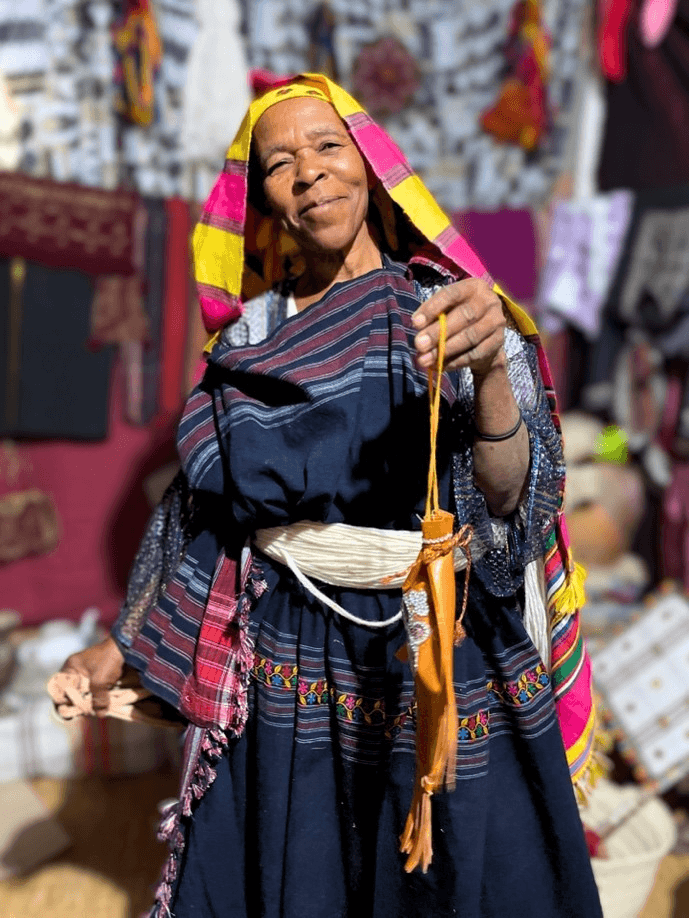
Visitors will be immersed in a unique experience that highlights the cultural heritage of Tataouine. The museum houses a collection of traditional leather items, each one carefully handcrafted and telling a story of the region's history. From traditional bags and belts to intricately designed accessories, visitors will have the opportunity to admire the artistry and craftsmanship of these pieces.
A Museum Guided Tour Full of Hand–crafted Items, Ancestral Kitchen Ustensils and Stories
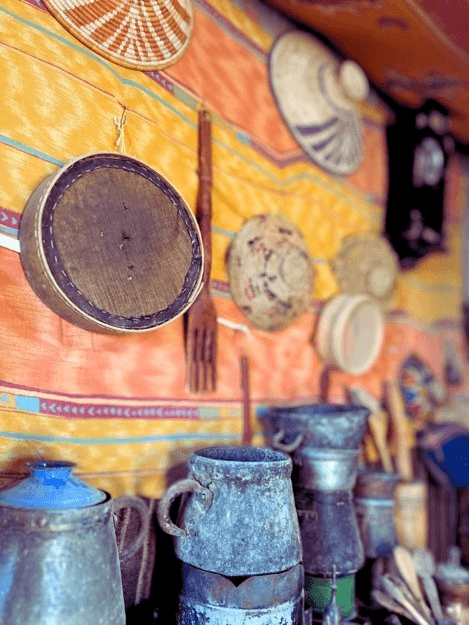
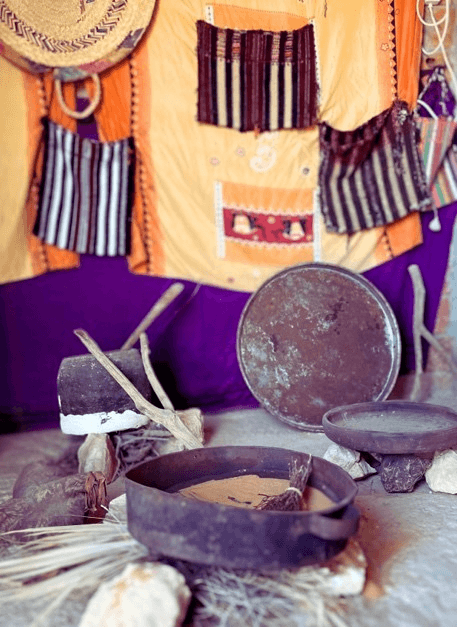
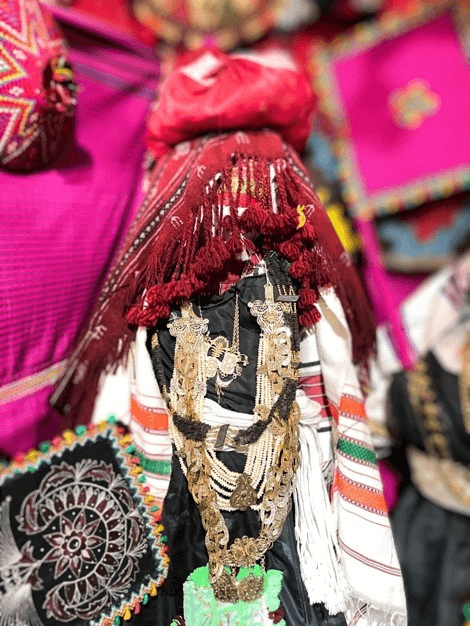
Savory Authentic Home-cooked Lunch: Couscous with ‘Geddid’ (Dried Meat), ‘Tchich’, ‘Loussa’ and More
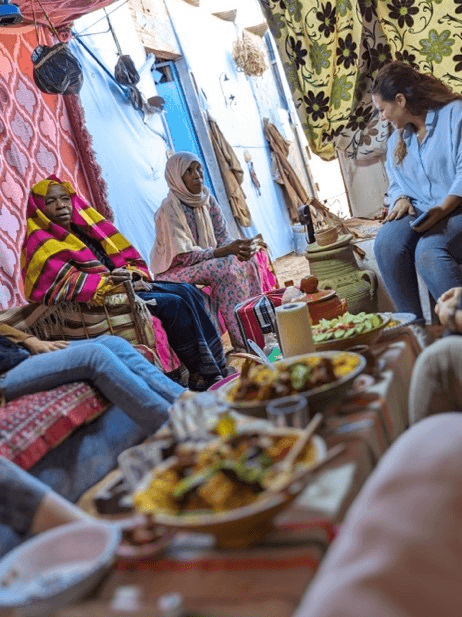
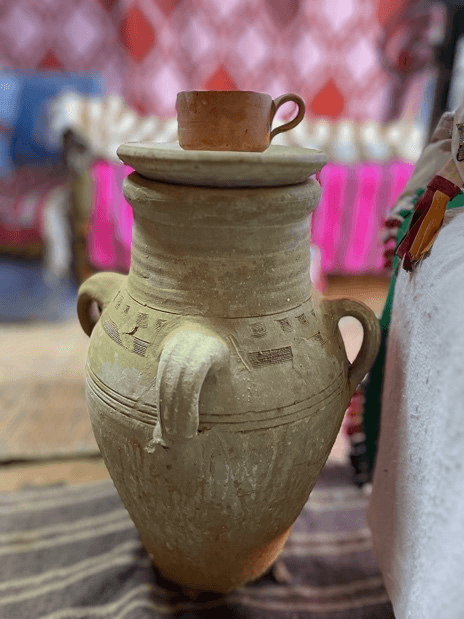

All Photos ©Rim Hajri/USAID November 2023
